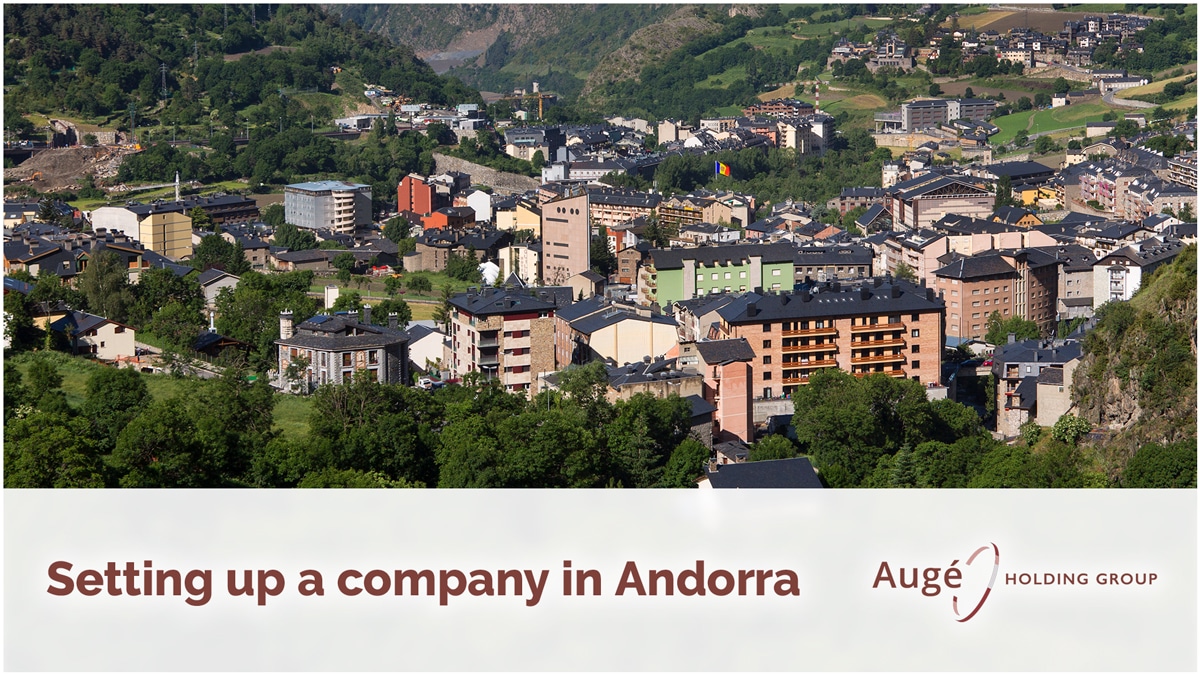As discussed in another article, conflict is part of every relationship, both in professional and personal realms. However, mediation, as we will explain below, is a powerful legal tool within the framework of professional and, especially, commercial relationships.
The practice of mediation is not limited to facilitating the resolution of purely local disputes. In fact, we must bear in mind that the Principality of Andorra has a GDP of three billion five hundred million euros (€3,500M), of which more than fifty percent (50%) represents imports and seven percent (7%) exports. Andorra is, therefore, a country where commercial flows are highly significant.
Indeed, every commercial relationship is a fundamental element for the growth and success of businesses. Solid commercial relationships allow companies to retain clients and suppliers, create mutual trust between parties, and make companies more competitive. By relying on reliable suppliers and regular clients, a company can better plan its operations, adjust its offerings, and stay at the forefront of its industry. Additionally, collaboration with other companies can generate synergies, shared innovations, and open doors to new markets, as networks of contacts facilitate access to new opportunities. A well-positioned commercial partner can help expand a business into new geographical areas or sectors. Good commercial relationships are not only beneficial from an operational standpoint; they develop over the long term, and the parties involved are generally more willing to negotiate more favorable conditions for both sides. Why? Simply to maintain a solid relationship built over the years, communicating and finding solutions in the interest of both parties. This is why mediation is ideal in case a commercial dispute arises.
The mediation process allows the parties involved to design solutions tailored to their specific needs. The parties have more control over the final outcome, as they can negotiate and create agreements that better reflect their particular circumstances. Unlike the judicial system, where a judge makes the final decision, in mediation, it is the parties who decide the solution to the conflict, with the help of the mediator. However, as explained in a previous article titled “Mediation: A Practical and Attractive Alternative Conflict Resolution System,” the involvement of a neutral, impartial, and especially specialized mediator is crucial.
The mediator is a specialized professional who meets the necessary requirements to be registered with the national Mediators’ Registry (and possibly the Chamber of Commerce) of the Principality of Andorra. The figure of the mediator in Andorra results from a dualist selection system for professionals. Firstly, Article 5 of Andorra’s Law 3/2018 on Mediation of March 22, 2018, establishes that any mediator registered in the Principality’s Mediators’ Registry must be in full possession of their civil and political rights, have a clean criminal record, and must be either Andorran or hold an immigration residency and work permit in the Principality. Secondly, the professional must hold an official Andorran or recognized degree in mediation. Mediators are therefore specialists, either Andorran or Andorran residents, and they are generally legal professionals by trade.
This filtering process, although it may seem strict and limiting, is justified by the nature of mediation and, especially, by the framework in which it is applied. Indeed, the business world is technical and specific, so in the case of a dispute between two professionally linked parties, they are more likely to choose mediation, knowing that the professional mediator is a specialist in the field. The training and specialization of the mediator determine their ability to understand the complexity of the conflict and effectively guide the parties. If a mediator has specialized knowledge in the area of the conflict (for example, commercial law), they will have the necessary tools to identify the key issues in the case. This enables them to propose more suitable and relevant solutions for the specific circumstances, making the process more effective and tailored.
Mediation works best when there are common factors between the parties. Legal culture, language, and cultural appropriateness are also very important in finding a solution between the conflicting parties.
Indeed, the set of rules, principles, and values that define a specific legal system and influence how conflicts are resolved in a society is an essential point in the mediation process, as the neutral and impartial professional must be familiar with this legal environment to understand the context in which the conflicts unfold.
Although the mediator must be neutral and impartial, their training, personal experience, and beliefs can influence how they perceive the conflict.
To conclude, it is important to understand that mediation is a highly valuable and effective alternative to judicial conflict resolution. In fact, it is a very interesting tool in the context of commercial disputes in general, as it is a legal instrument aligned with business interests. In some highly technical conflicts (such as Intellectual Property and Industrial disputes), the Arbitration and Mediation institution of the World Intellectual Property Organization (“WIPO – Arbitration and Mediation Center”) plays an important role in resolving technical conflicts globally, particularly in the field of business law, including copyright, trademarks, patents, and domain names.





